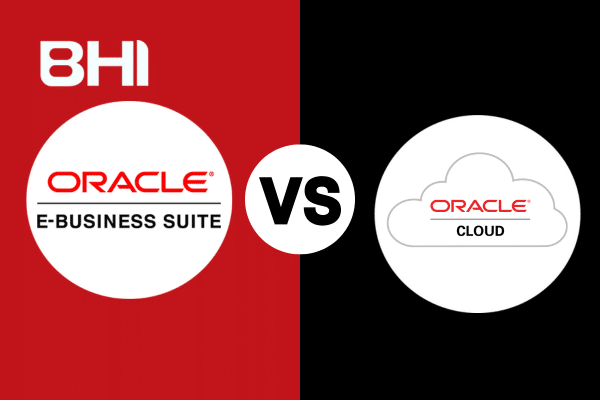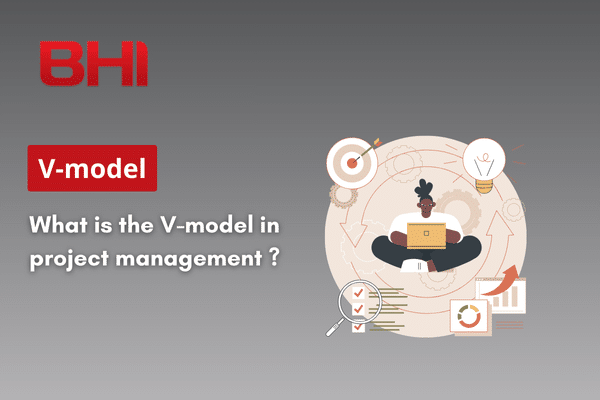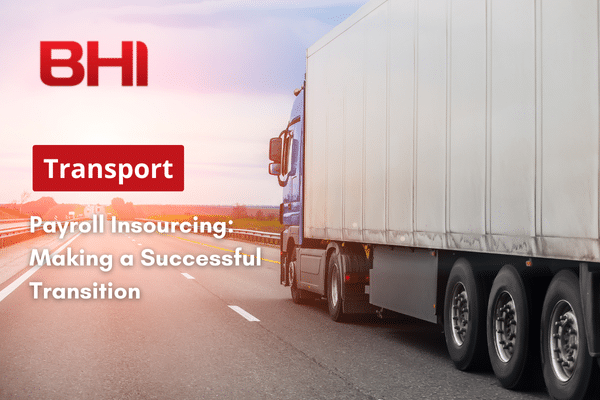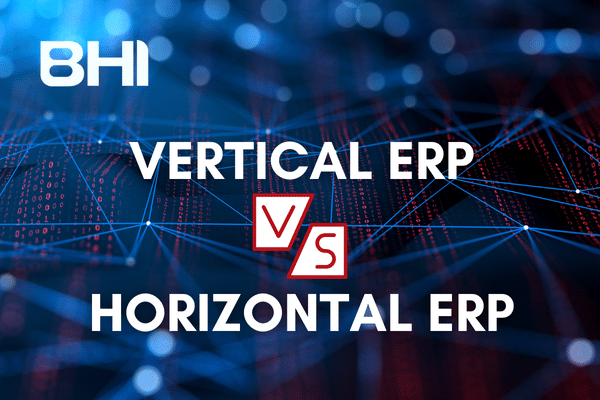With over 430,000 customers worldwide, Oracle offers two major ERP solutions: Oracle E-Business Suite (EBS) and Oracle ERP Cloud. Understanding their differences is essential for IT decision-makers and executives.
What is Oracle E-Business Suite ?
Oracle E-Business Suite, commonly called Oracle EBS, is a comprehensive suite of enterprise applications developed by Oracle Corporation since 1987. This on-premise solution (installed on company servers) offers over 200 integrated modules covering all business processes: financial management, human resources, supply chain, CRM, manufacturing, and many other critical areas.
Designed for medium and large enterprises, Oracle EBS stands out for its technological maturity, proven stability, and advanced customization capabilities. The platform operates on a traditional client-server architecture, providing organizations with complete control over their infrastructure and data.
What is Oracle ERP Cloud ?
Oracle ERP Cloud, launched in 2012, represents Oracle’s modern vision for enterprise applications. This Software-as-a-Service (SaaS) solution offers a cloud-native approach with pre-configured modules covering essential business functions: accounting, financial management, procurement, project management, and risk management.
Fully hosted in Oracle Cloud Infrastructure (OCI) data centers, Oracle ERP Cloud particularly targets companies seeking a modern, scalable solution requiring less internal maintenance. The platform benefits from automatic quarterly updates and continuous innovations in artificial intelligence and machine learning.
Architecture and Deployment : Two Opposing Philosophies
Oracle EBS : Complete On-Premise Control
Oracle E-Business Suite operates on a traditional on-premise deployment model. Companies install and maintain the solution on their own IT infrastructure, thus retaining absolute control over their data and processes. This approach requires a dedicated IT team for maintenance, backups, security, and version upgrades.
According to Gartner, 65% of Oracle EBS implementations require between 12 and 24 months to become fully operational, mainly due to the complexity of customization and integration with existing systems.
Oracle ERP Cloud : Cloud Agility
Oracle ERP Cloud adopts a multi-tenant cloud-native architecture, where multiple clients share the same infrastructure while maintaining data isolation. This approach enables faster deployment, typically between 3 and 9 months according to Oracle studies, and eliminates the need for internal technical maintenance.
Oracle Cloud infrastructure guarantees 99.95% availability according to official SLAs (Service Level Agreements), with automatic data replication across multiple data centers to ensure service continuity.
Cost Analysis : TCO and Economic Models
Oracle EBS Cost Structure
Oracle EBS’s economic model is based on perpetual licenses with annual maintenance costs. The initial investment includes software licenses, hardware infrastructure, implementation, and training. According to Nucleus Research analyses, the total cost of ownership (TCO) over 5 years for Oracle EBS ranges between 2.5and2.5 and 4.5 million for a 1,000-user company.
Oracle ERP Cloud Subscription Model
Oracle ERP Cloud operates on a monthly or annual subscription model, eliminating significant upfront investments. The price per user varies between 150and150 and 300 per month depending on selected modules and chosen service level.
A 2023 IDC study reveals that companies migrating to Oracle ERP Cloud reduce their IT costs by an average of 35% over 3 years, mainly through elimination of infrastructure and maintenance costs.
Features and Modules: Depth vs Modernity
Oracle EBS: The Power of Customization
Oracle E-Business Suite offers unmatched functional depth with over 200 available modules. This richness allows covering very specific business processes and vertical industries with extraordinary detail. Customization capabilities are virtually unlimited, allowing adaptation to the most complex processes.
Oracle ERP Cloud: Continuous Innovation
Oracle ERP Cloud focuses on modernity and continuous innovation. The platform natively integrates emerging technologies like artificial intelligence, machine learning, and advanced analytics. Digital Assistant features, voice recognition, and process automation (RPA) are integrated by default.
Oracle invests over $6 billion annually in R&D, ensuring a constant flow of innovations automatically deployed through quarterly updates.
Security and Compliance: High Standards, Different Approaches
Oracle EBS Security
Oracle EBS security relies on the client company’s responsibility. While the platform offers robust security mechanisms, their configuration and maintenance are entirely the organization’s responsibility. This approach allows granular control but requires internal security expertise.
Oracle ERP Cloud Security
Oracle ERP Cloud benefits from Oracle’s global security expertise, with ISO 27001, SOC 1/2/3 certifications, and native GDPR compliance. The platform integrates advanced security features like AI-powered anomaly detection and real-time threat protection.
Oracle invests over $1 billion annually in cybersecurity, ensuring a level of protection often superior to what a company can maintain internally.
Scalability and Performance : Adapting to Business Needs
Oracle EBS Scalability
Oracle EBS scalability depends entirely on the deployed hardware infrastructure. Companies must anticipate their growth needs and invest accordingly in additional servers, storage, and bandwidth. This approach offers complete control but requires rigorous planning.
Oracle ERP Cloud Scalability
Oracle ERP Cloud offers native elasticity, automatically adapting to load variations. The platform can handle usage spikes without manual intervention and adjusts to the company’s growth needs. This flexibility represents a major advantage for rapidly growing organizations.
Migration and Coexistence : Transition Strategies
Migration Approaches
Oracle offers several migration strategies from EBS to ERP Cloud:
Lift & Shift: Direct migration with minimal process adaptation
Transform & Migrate: Business process redesign before migration
Hybrid Coexistence: Maintaining EBS for certain modules, adopting ERP Cloud for others
According to Oracle, 73% of EBS clients are considering cloud migration within the next 5 years, primarily motivated by IT cost reduction and access to modern innovations.
Migration Tools
Oracle offers automated tools like Oracle Cloud Migrations to facilitate transition. These tools enable migration of data, configurations, and certain customizations, significantly reducing migration time and costs.
Support and Evolution : Two Service Models
Oracle EBS Support
Oracle maintains Oracle EBS support until 2030 at minimum, with possible extensions based on client demand. Premier support includes security fixes, functional updates, and technical assistance. However, major version upgrades require dedicated projects with significant costs and timelines.
Oracle ERP Cloud Support
Oracle ERP Cloud benefits from automatic quarterly updates including new features, performance improvements, and security fixes. This “evergreen” approach ensures clients always use the latest version without additional effort or cost.
Selection Criteria : Which Solution for Your Organization ?
Choose Oracle EBS if :
- Your company requires complex customizations
- You have an Oracle-experienced IT team
- Complete data control is a critical requirement
- Your business processes are very specific to your industry
- You prefer predictable long-term costs
Choose Oracle ERP Cloud if :
- You seek a modern solution with continuous innovations
- IT cost reduction is a priority
- Your IT team wants to focus on strategic projects
- You need rapid scalability
- Mobile access and modern user experience are important
Conclusion
The choice between Oracle E-Business Suite and Oracle ERP Cloud represents much more than a simple technological decision for ambitious mid-market companies and SMEs. It’s a strategic choice that determines your future agility, innovation capacity, and operational efficiency. With radically different approaches – complete on-premise control vs cloud agility – each solution addresses specific enterprise needs.
Market data is eloquent: 78% of new Oracle implementations now concern ERP Cloud, while the 25,000 organizations still using Oracle EBS benefit from unmatched stability and customization. Each platform offers a distinct competitive advantage depending on your organizational context.
This comparison perfectly illustrates how deployment mode (On-Premise or Cloud) is decisive in an ERP project.
To go further and explore the global advantages and disadvantages of these two models, beyond the Oracle framework alone, we invite you to read our article: ERP in the Cloud vs On-Premise: advantages and disadvantages. You’ll find a complete analysis to position your reflection in a broader digital transformation context.
Ready to make the right choice for your digital transformation ?
Do you already use Oracle EBS or Oracle ERP Cloud in your company? We would love to hear your feedback! What were the determining factors in your choice? How has this solution transformed your operations? What advice would you give to companies still hesitating between these two platforms?
For in-depth expertise and personalized support in your choice between Oracle EBS and ERP Cloud, discover how we can accompany you in your digital transformation and help you make the best decision for your organization.

















